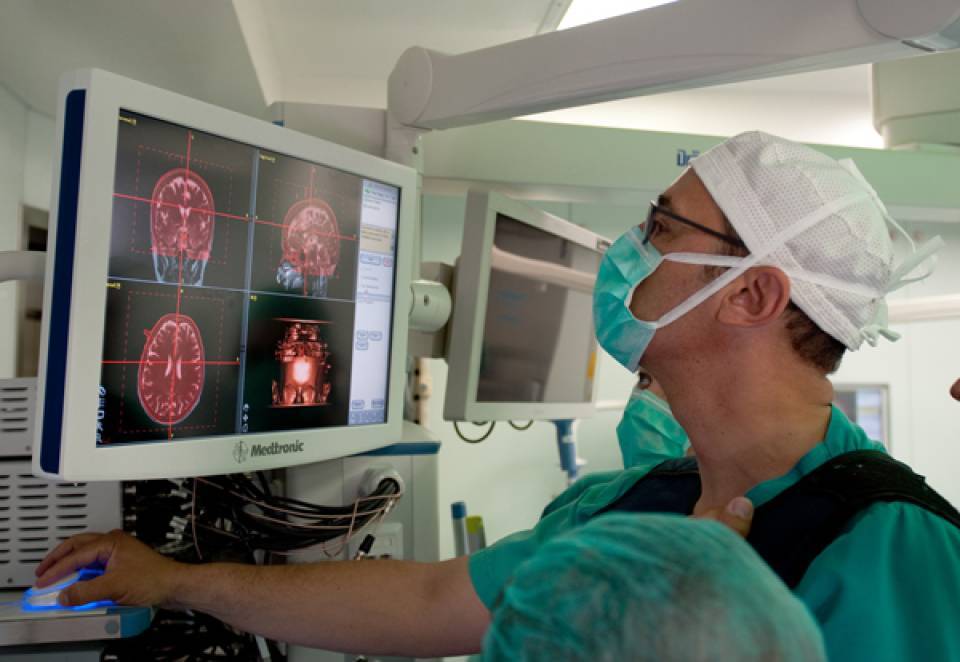Functional neurosurgery is the branch of neurosurgery that seeks to correct what works abnormally in the brain. It includes, among others, surgery of epilepsy and movement-related disorders and it is applied in those cases where patients do not respond to pharmacological treatment. In these cases, people are very dependent and do not have many options. If referred to this type of units, they are evaluated by multidisciplinary teams to decide if it is advised to carry out the intervention. "It is crucial to detect the resistance to drugs as soon as possible, because if the patient can be operated, they have a better recovery with less consequences," explains Dr. Jordi Rumià, Coordinator of the Functional Neurosurgery Program at Hospital Clinic and Sant Joan de Deu in Barcelona.
Surgery for epilepsy and movement disorders
"About a third of patients with epilepsy, which affects 400,000 people in Spain, does not respond to standard treatments," explains Dr. Mar Carreño, Coordinator of the Epilepsy Unit at Hospital Clínic.
Parkinson's and other movement-related disorders have a lower incidence but can also be resistant to treatment and have severe side effects. When this happens, other treatment options must be considered, including surgery.
About a 30% Of patients who do not respond to drugs can benefit from an intervention to remove the focus that causes neurological problems or brain stimulation to eliminate crisis. "However there is still much to know about the benefits of these options," says Dr. Francesc Valldeoriola, Head of the Movement Disorders Unit of the Neurology Department at the Clínic.
The technology has evolved a lot in the field of neurosurgery and now there are new techniques that offer the possibility of treating patients that did not have this option before. The low mortality in this type of intervention, less than 1%, opens the door to offer this possibility to patients who poorly control symptoms with medication.
"It is important that those affected by these diseases and their referring physicians and pediatricians know the existence of this treatment option and the benefits that may incur when other treatment strategies fail," explains Dr. Rumià. "Thanks to these interventions, patients significantly improve their quality of life and the cost-benefit is more favorable than with other treatments," he adds. The benefit is not only for individuals and families but for the whole community: in many cases the health and social costs associated with chronic disability are reduced, and their re-employment is even possible.
State Reference Unit
Eleven years after its launch in Hospital Clínic, Hospital Sant Joan de Deu in Barcelona joined the Functional Neurosurgery Program in 2006. Now, together, Clinic and Sant Joan de Deu have the Unit State Reference (CSUR) accreditation of the National Health System in refractory epilepsy, movement disorders surgery and rare diseases with movement disorders in adults and children, respectively.

